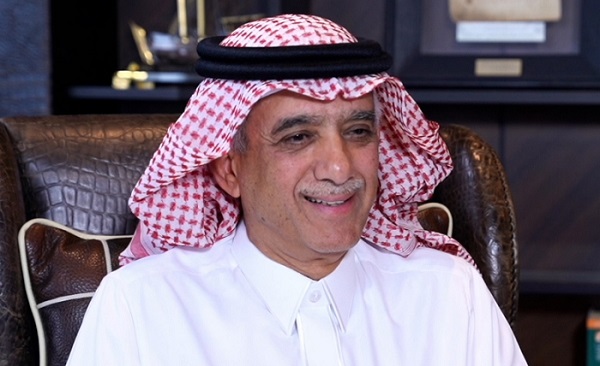
- Chief Executive Officer, Zamil Group Holding Company (Manufacturing, Petrochemicals, Diversified)
“Something we have always understood and appreciated was the strength that each and every brother brings to the table. You learn from everyone – It was a roundtable.”
Summary
Adib AlZamil is Chief Executive Officer of Zamil Group Holding Company, a large Saudi Arabian business group with a diversified portfolio that includes wholly owned, joint venture and publicly listed companies in construction, manufacturing, and petrochemicals. Established in 1920 by his father, Sheikh Abdullah Al-Hamad AlZamil, the Zamil Group has continued to grow as a second and now third-generation family business.
AlZamil begins the interview by tracing the group’s 102-year history, as well as his upbringing with 12 brothers and five sisters. He relates how his father passed away at age 61, leaving leadership of the group to AlZamil’s oldest brother, Mohammed. He encouraged his younger brothers to pursue their educations abroad before their return to the family business over the course of the 1970’s. AlZamil joined in the mid-1970’s, when the group commenced substantial investment into construction and building materials. He describes this shift as one that occurred in alignment with Saudi Arabia’s plans for development, as the country was benefiting from the high price of world oil in this period. The group thus moved into manufactured products and services to meet the needs of this growing petrochemical industry.
As the Zamil Group grew, leadership and the division of responsibilities was shared amongst the 12 brothers. AlZamil explains how Mohammed, the oldest, set up a roundtable style form of governance that has persisted until today. He also describes how the transfer of ownership from one generation or family member to the next has become a norm for the business. Part of this transfer of ownership involves talent development, as family members are expected to prepare subsequent generations to be good owners and entrepreneurs through in-house training sessions, for example. He emphasizes, however, that “being a family member is by no means a guarantee that you will get a job in this group. You have to be qualified.”
AlZamil discusses the evolving sophistication of the capital market in Saudi Arabia, as well as the evolution of manufacturing and non-manufacturing talent in the country. He states that “Saudization,” defined as the government-supported promotion of opportunities for Saudi citizens as opposed to foreign nationals, had always been a part of the group’s goals. Additionally, he addresses Saudi Arabia’s use of its oil reserves and states that the country’s leadership had “unlocked the value” from those resources.
In reference to the country’s resources, AlZamil proceeds to talk about “Saudi Vision 2030,” a government program initiated with the goal of diversifying the country’s economy, society, and culture. He calls the program “a totally different reality” and emphasizes the speed with which the government has implemented changes to increase the country’s competitive advantage in sectors beyond petrochemicals. According to AlZamil, Saudi Arabia’s human resources represent one of the country’s most significant assets, and he contends that supporting entrepreneurship and expanding employment opportunities are central to Vision 2030. He describes how part of this goal involves increasing the participation of women in the labor force. He refers to the liberalization of attitudes towards women’s participation in society as a “revolution,” viewing it as a social rather than governmental transformation.
AlZamil concludes the interview by returning to the family governance structure of the Zamil Group, emphasizing the continued importance of the consensus-based decision-making process started by his brother Mohammed. While he acknowledges some missed opportunities and challenges over time, he views them as part of business development especially in a country that was emerging economically. He expresses gratitude and optimism for the future, guided by the family “roundtable” which he views as an essential component of the group’s culture and leadership.
Video Clips by Topic
Family Business
Adib AlZamil, CEO of Zamil Group Holding Company, explains how the group's governance was shared among his siblings and relates how they passed down leadership responsibilities from one generation to the next.
Government & Business
Adib AlZamil, CEO of Zamil Group Holding Company, outlines the ways Saudi Arabia used its oil reserves towards the country's development and addresses the involvement of the private sector in the government's "Saudi Vision 2030" program.
Gender
Adib AlZamil, CEO of Zamil Group Holding Company, describes a rising workforce participation rate among Saudi women and explains his views on the factors which led to this change.
Additional Resources
- Hasan Chowdhury. "Vision 2030 is Saudi Arabia's grand plan to future-proof its oil-based economy. Experts say it's a huge risk." Insider, 27 August, 2023.
- Christina R. Wing, Suraj Srinivasan and Esel Çekin. "Family Matters: Governance at the Zamil Group." Harvard Business School Case 620-009, August 2019. (Revised March 2022).
- Fahad Abuljadayel. "Saudi Zamil Group eyes green energy projects as CEO sees oil and gas here to stay." Arab News, 24 February, 2022.
- Ben Hubbard & Kate Kelly. "Saudi Arabia’s Grand Plan to Move Beyond Oil: Big Goals, Bigger Hurdles." New York Times, 25 October, 2017.
Interview Citation Format
Interview with Adib AlZamil, interviewed by Tarun Khanna, Dammam, Saudi Arabia, 16 May 2023, Creating Emerging Markets Oral History Collection, Baker Library Special Collections and Archives, Harvard Business School.
